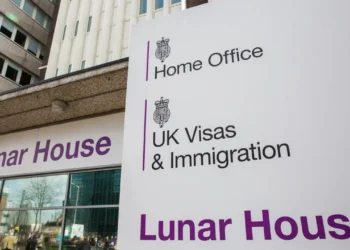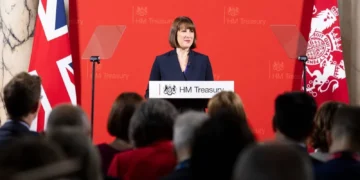The Canadian government, under the leadership of Prime Minister Justin Trudeau, is taking action to address concerns that the country’s education sector has been strained by an influx of foreign students, leading to housing shortages and labor market pressures.
To tackle these issues, Immigration Minister Marc Miller recently unveiled a framework aimed at elevating the standards for services, support, and outcomes provided to international students. This framework is set to take effect from the fall semester of 2024.
Under this plan, educational institutions will be required to meet a higher benchmark for international students’ services, including ensuring adequate housing. Those schools that meet these elevated standards will receive priority in the processing of student visas.
Additionally, starting from December 1, institutions will have to directly confirm every applicant’s acceptance letter with the Canadian government. This measure is intended to combat fraud, which became evident when hundreds of Indian newcomers unknowingly entered Canada with fake college admission letters.
In the coming months, Miller’s department will conduct a review of the post-graduate work permit program, introducing reforms to align it more closely with the needs of the labor market.
The government’s actions come in response to concerns that Canadian educational institutions have become overly dependent on international students as a source of funding.
Foreign students typically pay about five times more in tuition fees than Canadian students, leading to the proliferation of colleges in unconventional locations, such as strip malls and temporary buildings.
However, Miller emphasized that this situation arose due to consistent underfunding of post-secondary education, which institutions have attempted to address through opportunistic fees charged to international students. Provincial funding as a share of revenue has decreased from 42% in 2001 to 35% in the last year.
In 2019-2020, foreign students contributed 37% of tuition fees at Canadian universities, and this figure rose to an estimated 68% at Ontario’s colleges in 2021.
Many international students view college admission as a pathway to gaining permanent residency in Canada. While there have been discussions about introducing a cap on international student visas, Miller dismissed the idea, recognizing that the experiences of international students are multifaceted and that the provinces play a crucial role in accrediting learning institutions.
According to Bloomberg, international education contributes over C$22 billion ($16 billion) annually to the Canadian economy, surpassing exports of auto parts, lumber, or aircraft.
It also supports over 200,000 jobs. However, the surge of foreign students has exacerbated housing shortages and labor market imbalances in some regions.
Miller’s announcement primarily targets private colleges and immigration consultants accused of profiting from international students. An earlier government investigation identified nearly 1,550 study permit applications linked to fraudulent acceptance letters.
While many fraudulent cases were detected and denied, about 450 permits were issued. Subsequent reviews revealed that some applicants were genuine students, while others were unwitting victims of fake admission documents.
The Canadian government’s new measures aim to address these issues and ensure a more transparent and effective system for international students.
For any enquiries please, email our editorial team at [email protected]. If you liked this story, kindly sign up for Clariform Newsletter, a handpicked selection of stories that helps you clarify things that matter and gives you clear signals about your world, delivered directly to your inbox.
Please subscribe to our YouTube channel, and join thousands of Clariform on Facebook, Twitter and Instagram.












